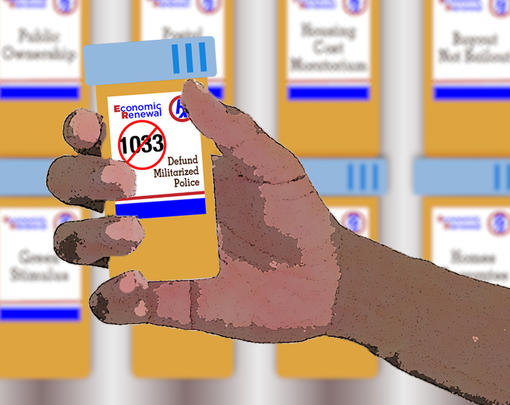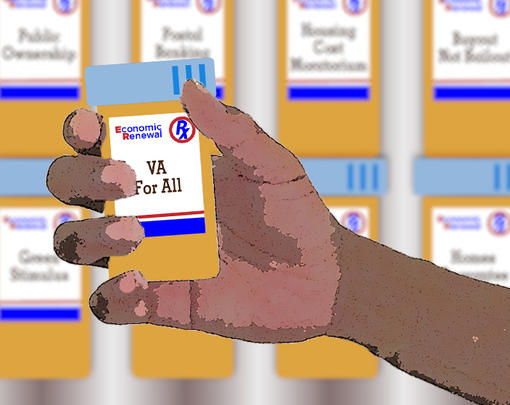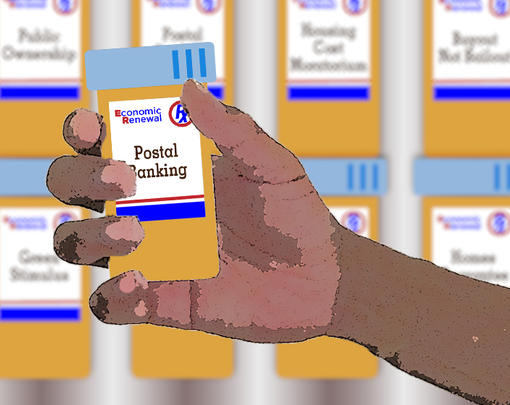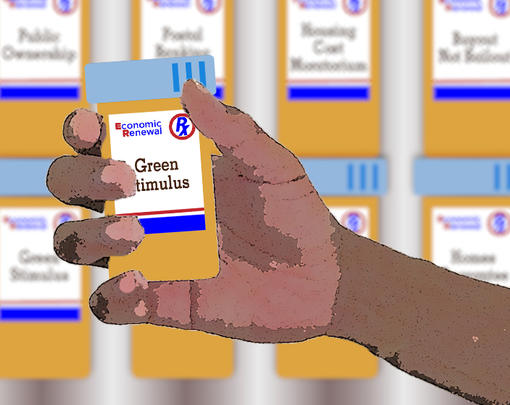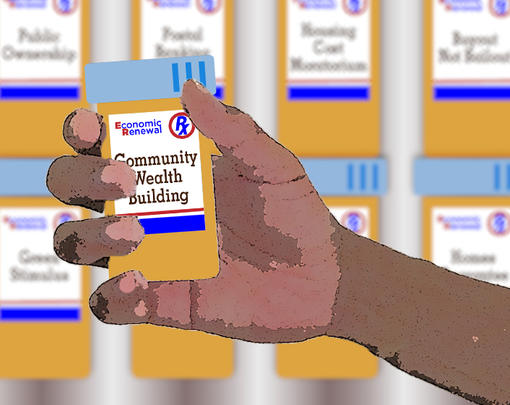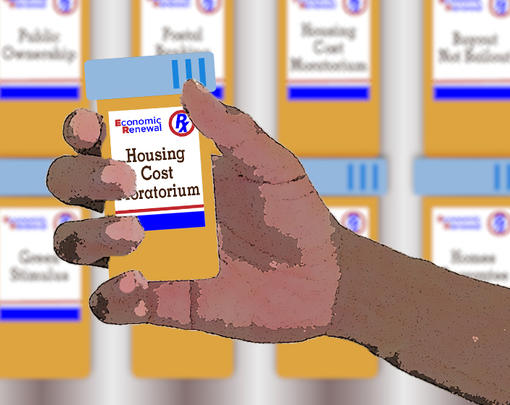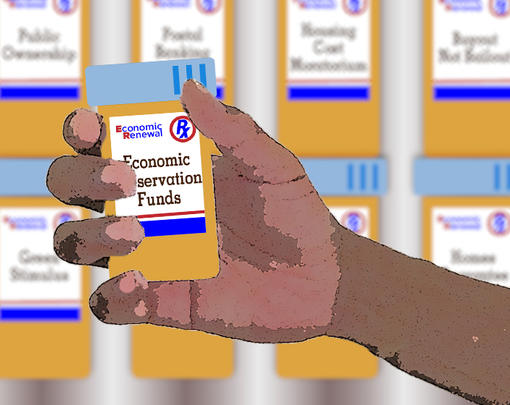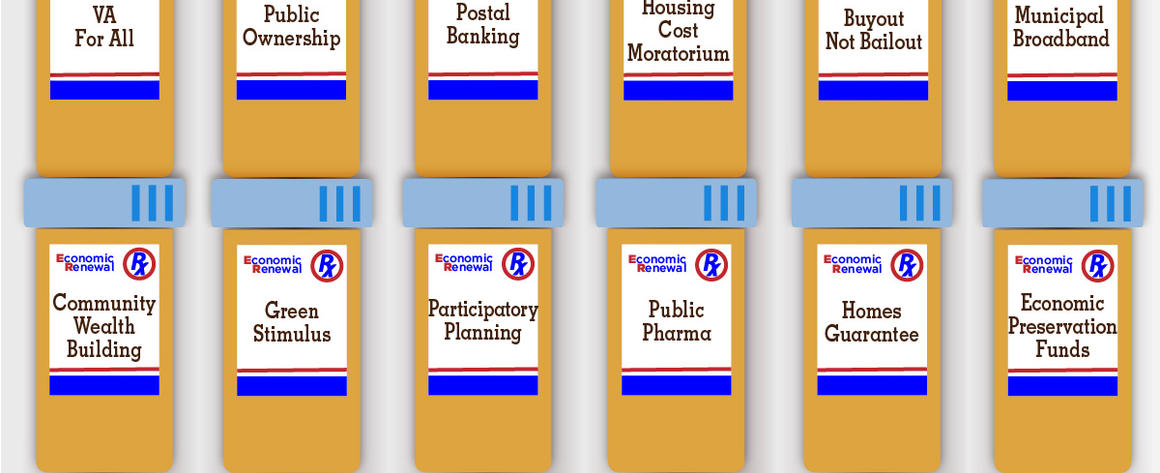
- Beyond COVID-19: Prescriptions for economic renewal
Beyond COVID-19: Prescriptions for economic renewal
The COVID-19 pandemic has struck an extraordinary blow to an economic system already in great difficulty. Recent years have brought a growing awareness of the steadily building crises of our current economic model. Neoliberal capitalism is beset with the compounding problems of toxic inequality, ecological collapse, and decaying democracy.
Now, with this latest emergency, the struggling status quo has quite literally vanished out from under us, with a controlled shutdown of much of the economy outside of a few essential sectors. This is a major public and economic event of historical importance, potentially unprecedented in its magnitude in peacetime, with an economic contraction faster and steeper than the Great Depression. The effects on our social, economic, and political future will inevitably be profound and long-lasting. While we do not know exactly how events will progress, we can be sure that things will never be quite the same again.
This new crisis has highlighted the flaws in our current political and economic settlement, pushing it to breaking point. The contradictions that were already manifest in the old system have now become intolerable. The precariousness of modern work, the eviscerated public sphere, the consequences of the limitless extraction of wealth from our communities and its redistribution upwards to the largest corporations and a tiny group of elites—all stand revealed in the light of the present emergency. These multiple overlapping crises were present long before COVID-19 appeared. But this pandemic is doing what even the Great Financial Crisis of 2007-08 could not; it is necessitating fundamental changes in the social and economic organization of our society.
As we ready ourselves to reemerge, rebuild, and reconstruct amid the shattered post-COVID-19 landscape, we must strive to make the economic recovery the starting point for a new economic system. The actions we take now, both as emergency responses and to aid a future economic recovery, will likely have profound and lasting consequences—on the way we do business and conduct our own self-government, how we live in communities, and the terms within which we reach a new political-economic settlement. With climate change about to once again take center stage, bringing with it the likelihood of further pandemics and related shocks, the stakes could hardly be much higher.
This crisis has exposed our interconnectedness and vulnerability, demonstrated the precedence of the everyday economy over the financial, and revealed the absolute indispensability of essential workers and the local state. In this, it represents an opportunity to reset our democratic conversation, reconstruct our politics, rebuild our communities, and reprioritize and revalue the public sphere. In the renewed importance of the local state, local economic capacity and resilience, in the explosion of mutual aid networks, self-organization, and deep cooperation, there is a hugely important potential “teachable moment” regarding the centrality of place and community in our economy. This is despite four decades in which politics and policy have celebrated the essential placelessness of economic activity and elevated the icy indifference of global markets.
First, we must take immediate action to protect the vulnerable and preserve lives. We must support the movements on the ground that have worked through the difficult context of social distancing and epidemiological lockdowns to push for the immediate relief desperately needed by the families and communities on the front lines of this crisis. At the same time, however, we must also open up a conversation about the kind of economy we want to rebuild as we emerge into the immediate post-pandemic landscape. How do we rebuild with resilience for communities at the forefront of economic dislocation and destruction? What does the recent and unprecedented level of state intervention, unthinkable just a few short months ago but now essential for survival, mean for how we think of action not just on climate change but also inequality and all the other challenges besetting our system? How do we protect our local enterprises from vulture capital waiting in the wings to further consolidate ownership and wealth?
To this end, the Next System Project is hosting an ongoing symposium in which we will be floating and testing ideas ranging from new forms of public ownership in new sectors to the need to base economic recovery on a green stimulus and Green New Deal. We’ll be adding to this forum and building out these arguments over time, as we track this rapidly changing and still-developing situation. To find out more about our positioning, see The Democracy Collaborative’s statement of priorities for this challenging new era of crisis and opportunity.
—Sarah McKinley and Joe Guinan
